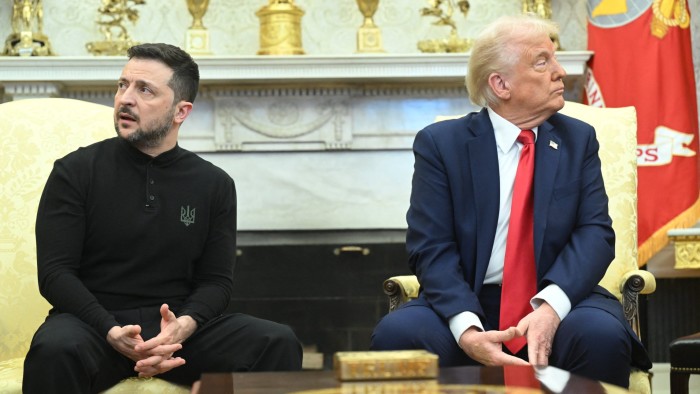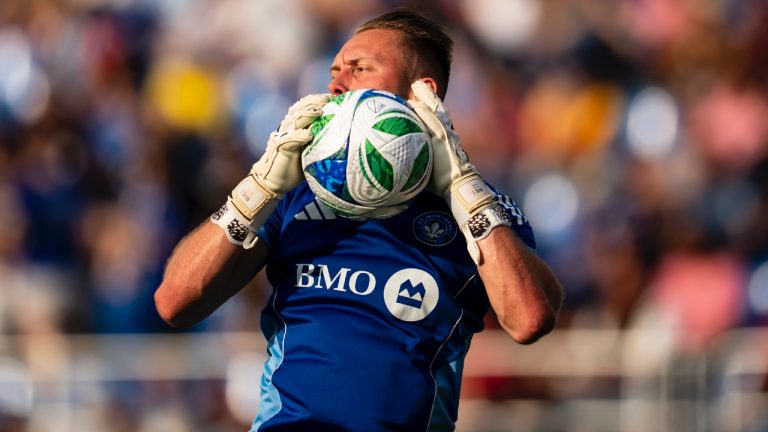European and Ukrainian officials fear Donald Trump is on the brink of walking away from peace negotiations with Kyiv and Moscow, potentially using minor progress in talks as an “excuse” to say his job is done, according to people briefed on the discussions.
The US president was elected on a promise to end the war in “24 hours”, but his overtures to Russia’s Vladimir Putin and attempts to strong-arm the Ukrainian leadership have failed to win backing for his initial proposal of a 30-day ceasefire, let alone a lasting truce.
Following talks with the US side in recent days, European and Ukrainian officials are convinced Trump is ready to seize any kind of breakthrough this week, which marks his first 100 days in office — even if it falls short of a long-term solution, four officials told the Financial Times.
One European official said Trump was “setting up a situation where he gives himself excuses to walk away and leave it to Ukraine and us [Europe] to fix”.
Putin’s unwillingness to agree to key US and Ukrainian demands such as maintaining a postwar Ukrainian military force, and the complexity of the conflict has made Trump re-evaluate his commitment to a peace deal, they added.
Marco Rubio, US secretary of state, on Sunday called this a “critical” week for talks and signalled that Washington is unwilling to be dragged into an extended negotiation.
The Russian president on Monday offered a three-day ceasefire over the holiday of May 8-10 when Russia celebrates the Soviet victory in the second world war — but he has failed to keep his previous pledges to pause hostilities over Easter and on Ukrainian energy infrastructure.

US officials were “getting concerned that they’re really coming back with nothing in talks with Russia” and began floating ideas for a deal that could fit into Trump’s quick timeline, a person briefed on the discussions said.
But Trump’s push for a quick end to the war has run against Putin’s intransigence to agree to terms that fall short of his maximalist demands, such as “denazifying” Ukraine.
“There are people who think the Russians might go along” with Trump’s proposal, the person said, adding that the issue was that there was “nothing in place to actually make this work”. “Some of the elements are actually good, but it’s the impatience of doing it now that’s the problem.”
Trump over the weekend praised his Ukrainian counterpart, Volodymyr Zelenskyy, whom he met in the Vatican on Saturday where they were attending the funeral of Pope Francis. He also criticised Putin, saying he was “surprised and disappointed” at the Russian missile attacks on Ukrainian cities.
But some Ukrainian officials told the FT they were fearful of the US president walking away, with one senior official saying he viewed it as a “serious possibility”.
However, Ukrainian foreign ministry spokesman Heorhii Tykhyi said the meeting between the presidents was “constructive and a good one”.
Following a public spat between Trump and Zelenskyy in the Oval Office in February, Ukrainian officials said they experienced whiplash after positive encounters, only to have that feeling dashed when their American counterparts return to Washington.
Kyiv was initially encouraged by a post from Trump on his Truth Social platform shortly after the Vatican meeting in which he threatened Russia with new sanctions to get it to the negotiating table.
But a day later Trump’s secretary of state Rubio, poured cold water on the idea of more trade restrictions, which he said would prolong the war.
“This week is going to be a really important week in which we have to make a determination about whether this is an endeavour that we want to continue to be involved in,” Rubio told NBC.
Tykhyi dismissed these comments, saying Kyiv sees them “as part of the communications strategy”. “Obviously, the United States at this point, as a mediator, is trying to push the sides [of Ukraine and Russia] forward to achieve peace and this is how we read these those statements,” he said.
On Monday, Russia further hardened its conditions with foreign minister Sergei Lavrov saying that Moscow considered “international recognition” of its annexation of five Ukrainian regions to be an “imperative” for any deal.
All these developments led some European capitals to rethink their efforts to “keep [Trump] engaged”, the first official said, and instead to “do the right thing and rather not what Trump wants”.
Kyiv has quietly begun preparing to go it alone in anticipation of a US pullout, by increasing domestic arms production and intensifying talks with European allies about future assistance.
It was unclear if the US would stop intelligence and military support to Ukraine — as Trump did temporarily in March — in the event of the White House stepping back from the diplomatic efforts, the officials said.
“There are serious apprehensions in Ukraine that Trump might walk away from ceasefire negotiations,” Oleksandr Merezhko, an MP in Zelenskyy’s ruling party and head of the parliament’s foreign affairs committee, told the FT.
“The worst thing that can happen in the US-Ukraine relations is when Trump will lose any interest in Ukraine,” he said, which he added “might be perceived by Putin as a tacit permission from the US to escalate the war”.
Additional reporting by Andy Bounds in Brussels and Guy Chazan in New York







